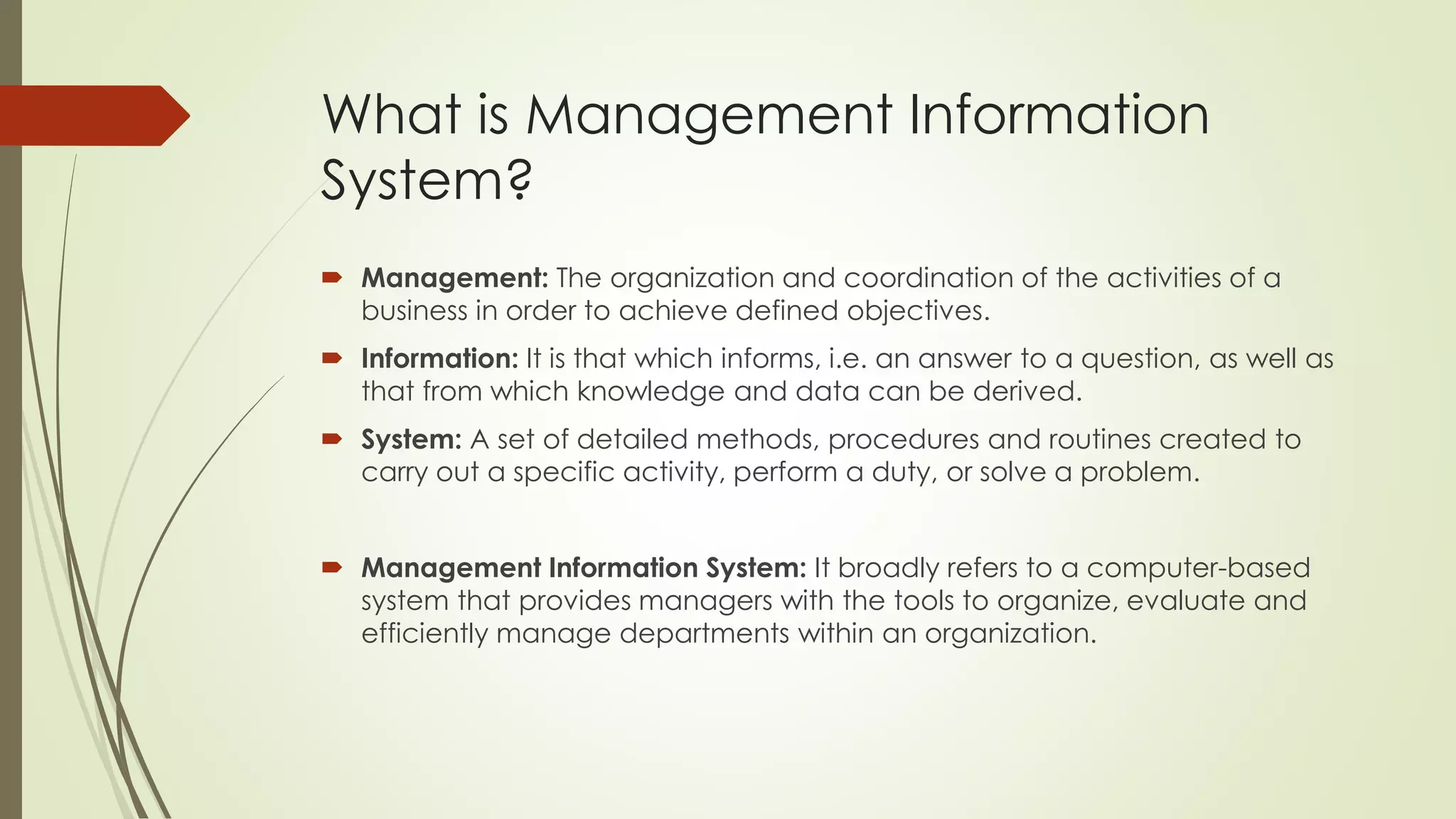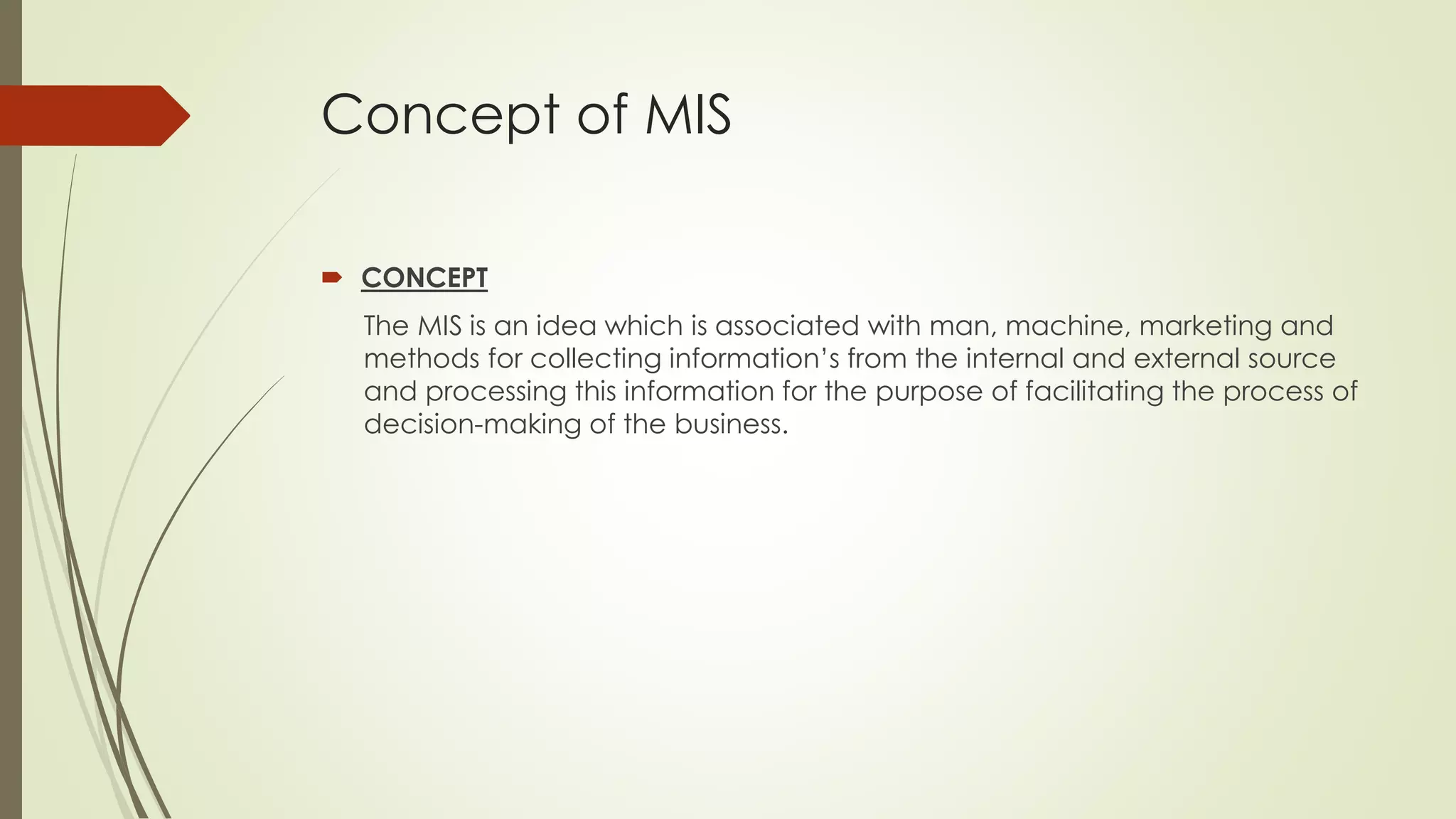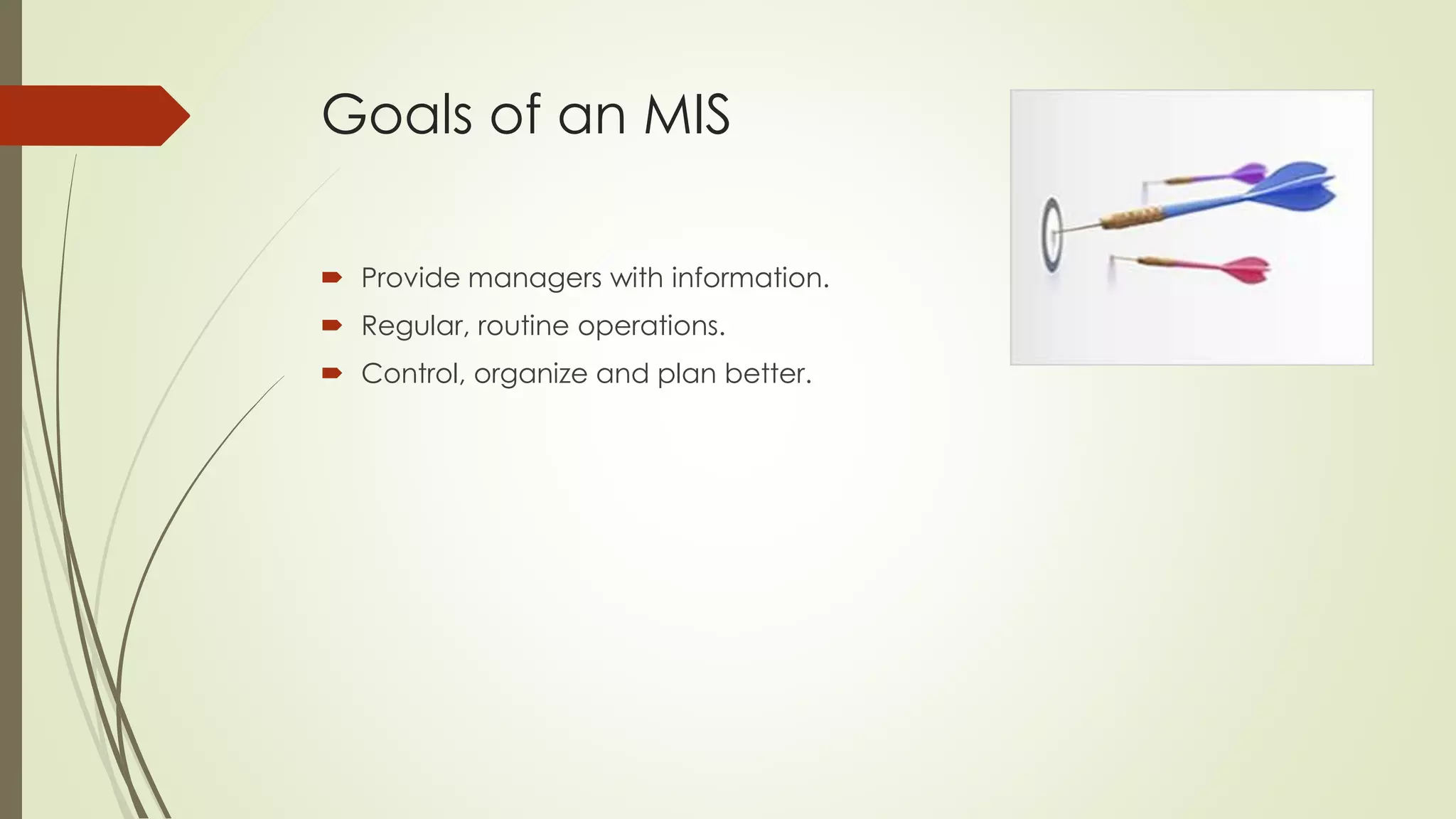A Management Information System (MIS) is a computer-based system that helps managers organize, evaluate, and manage an organization's departments by providing detailed reports for decision-making. It integrates data from various functional systems to improve efficiency, reduce costs, and ensure compliance while fostering better management decisions. The system's components include marketing research, internal record systems, and decision support systems, which collectively support strategic planning and operational excellence at various management levels.

























